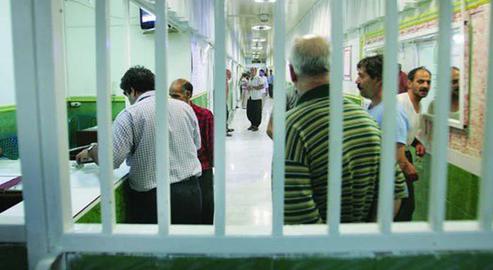"Cycling has taught me flexibility and allows me to overcome obstacles more easily. But in the past, women in Iran have been banned from cycling. My struggle with conservative minds and a conservative culture is the hardest thing I have ever faced in my life."
These are the words of Faranak Partoazar, the most successful woman cyclist in Iranian history.
Born in December 1988 in Shiraz, Faranak Partoazar graduated with a Bachelor's degree in civil engineering.
"Like everyone else, I started cycling as a child, but I had to give up my bike at the age of nine and switch to indoor sports because of social pressures,” she told IranWire.
She tried basketball, volleyball and martial arts. She even played chess — anything that girls were allowed to play."The fact is that none of these satisfied me spiritually and in terms of competing,” she says. “I had childhood dreams about cycling. When I was a kid, I used to hear about men and women cycling around the world. I thought: if I could ride a bike one day, I could see the world! This idea of getting to know other countries and cultures has always tempted me. That's why I could never forget my bike altogether"
At the age of 20, she went back to cycling, borrowing her brother's bicycle. "It was hard, and I was full of fear and anxiety, but I wanted to do it."
Although cycling in the streets and alleys near her home was daunting, it was also an enormous pleasure for her —it was like grasping that childhood dream. "Fear of rejection and judgment concerns everyone. I could never say I don’t get upset when people reject me or misjudge me. But the joy of cycling was so great that I overcame the hardships and fears. I wanted to have a direct impact on my own future.”
The Shiraz Race That Changed her Life
An encounter one day changed her life. "Like most days, I was out cycling. A gentleman on a bicycle told me a province-wide cycling competition was going to be held in Shiraz, and invited me to sign up. I did not have a professional bicycle, but my goal was not to race but to learn the techniques of the sport. On my very simple bicycle, I came third. When they saw what I was capable of, the province’s cycling board encouraged me to pursue the sport professionally. However, I did have to give up for a while because of my studies at the university."
A year later, she was invited to compete at the national level: “Again, I borrowed a bicycle. To everyone’s surprise, I won the bronze. It was really difficult, in fact almost impossible. I had no coach, the cost of lessons was high and I could only practice on and off."
In 2014, the Iranian Cycling Federation signed a deal with the Dutch coach Harry Hendrix. “Both men and women cyclists were invited. We trained briefly and then we were sent to Turkey. Even the federation managers and coaches said that the girls' performance in that short period of time was extraordinary."
"We fought," Partoazar said, recalling those early days of Iranian women’s cycling. "We all fought because we did not want to lose what had been so hard to achieve. All of us, from the federation to the head coach and every single cyclist, knew that we could keep this sport alive by getting results."
Iranian Women Cyclists Get a Taste for Mountain Biking
Faranak Partoazar took fifth place at the 2014 Asian Championship, alongside an Iranian male cyclist, who also took fifth."Iranian women’s cycling started that year. And up to then, Iranian women cyclists were not able to compete in the mountain bike events. They competed in road races, but not in other disciplines."
When Partoazar took first place in a mountain course competition, it had an impact, changing attitudes within the federation and among senior officials.
She looks back to the competitions in Indonesia in 2014, and she remembers how far back she was from the person right up front. Since then, she has closed the gap. "People who know the sport will understand. Reducing a distance that amounts to a minute or two is not easy."
From 2014 on, she says, more women started taking part in mountain bike events. "We have improved and achieved good results. I still think about when I used to borrow a bike. The idea of a sponsor didn’t even enter my mind."
In 2015, Partoazar joined the women's mountain bike team, and later started competing alongside men in international mountain bike competitions. "In 2017, I won the first medal — a bronze — for the relief team along with four male cyclists. A year later, for the Asia competitions, I won the first medal in the history of women's cycling in my specialist area, cross country, which is also an Olympic sport. That was also a bronze. It was not really reported on as much as it should have been in Iran, but the important thing is that I made the impossible possible.”
In 2019, she won a bronze medal at the Asian Championships as part of a male/female Lebanese team. In 2020, she became the only Iranian bronze medalist in Asia: "I have won more medals than any other woman in Iran,” she says.
Financial Hurdles
“As soon I started cycling seriously and joined the national team, I signed a contract with Fuji. A year later, in 2015, I had a contract with Festus for three years. But since then, I have not had a sponsor. The price of the euro and the dollar has skyrocketed, and bicycle parts have naturally risen in price. When I had a sponsor, there was more peace of mind. Unfortunately we have had to cope with these conditions for the past four years."
She puts the withdrawal of sponsorship down to import bans and difficult economic conditions, as well as the marginal status cycling holds in Iran — it plays second fiddle to football, volleyball, basketball, wrestling and other sports. Despite the honors she has received, Partoazar is not as well known as other medalists and athletes, or even third-rate Iranian football personalities.
In 2017, Partoazar told Shargh newspaper that, with more financial support, she could become a world champion.
She says the cycling federation’s financial struggles also take their toll. “It never supplies our bicycles. When the financial situation is good, it will replace or reimburse some of the worn parts. But when there are difficulties, we have to buy the equipment and parts ourselves."
"In recent years, both I and my family have also been under financial pressure. But I have a big goal and I am willing to pay the price for achieving it.
"What my friends and I have learned over the years is that the issue goes back to the way people think in cities and towns. This is a cultural rather than a legal problem. I see no difference between cycling and other sports women play. And if people get to know a particular athlete, if that person becomes recognizable, it helps promote that sport. This is part of making the impossible possible.”
Related coverage:
The Real Cost of Censoring Female Athletes in Iran
The Woman Who Ignored all the Stop Signs
How Does Iran Treat its Women Athletes?
Women Athletes: National Uniform, Hostile Treatment
Women in Mashhad Barred from Using Public Bicycles
A Female Journalist’s Diaries of Riding a Bicycle in Tehran
Iran's Ambassador Praises Women Pilots — But They Still Cannot Ride a Bicycle
visit the accountability section
In this section of Iran Wire, you can contact the officials and launch your campaign for various problems





























comments